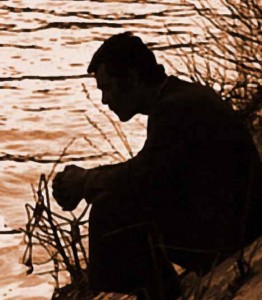Grief and Loss
Many Forms of Bereavement and Grief
Bereavement stages and the stages of grief are viewed as very similar. However, in grief counseling we learn that simplifying the reactions to a loss by breaking it into specific stages is unrealistic. There is obviously no “correct” way to deal with grief, especially given the fact that there are so many different types of people, types of losses, and therefore, forms of grief.
For example, losing a pet and mourning the loss of a child are two completely different situations, yet both can cause severe episodes of grief. Grief is very natural when someone experiences loss of any kind. Losing a job, a relationship, or even a treasured keepsake can stir up grief. Each form of grief should be taken seriously and demands support and attention.
How Does Bereavement Differ From Grief?
Bereavement is one of the stages of grief brought on by a loss due to death. Keep in mind that, in most cases, healing from grief can be easier to cope with because you are not faced with the finality of dying. Their recovery may include learning to live without some type of relationship. However, most experts will tell you that, in most cases, what is lost can usually be forgotten, found, or even replaced over time. For example, grieving due to the loss of a job might end suddenly if a better job is soon to follow. Or someone who is grieving over a lost romantic relationship could be reduced or even eliminated from being able to meet someone else.
But we must keep in mind that, regardless of the possibility that grief and loss does have limits and boundaries, we cannot overlook the reality of their situation. After losing a loved one, coping with the fact that they will not be coming back is one of the most difficult things most people face in their lifetime.
Having a Supporting Role is Key
After learning about the different bereavement stages, expecting someone who is suffering such a loss to move smoothly through these arbitrary stages of grief is not realistic. However, it may be possible during grief counseling to assess the mental state of the bereaved according to their unique and personal backdrop.
It can be equally, if not more important, for those who are providing support and counseling to the bereaved to be more aware of the stages the bereaved themselves. It is important to try and imagine the added pressure that may surface if someone is wondering why they are still in denial, or why they are not feeling any anger when they are “supposed to be”.
People may freely enter and revert to any of the bereavement stages without any rhyme or reason, which is perfectly normal. In fact, it is quite common and normal. Also, it is not unusual for there to be times when emotions will arise that might not seem related to their original grief in any way. In other words, nothing should be unexpected, nor should you try to make sense out of anything during this difficult healing process. Rather, your love and support is what means the most.
The main goal in grief counseling is helping someone come out of their loss on the other side. There will be some point when the bereaved will believe that it is alright to move on and create a new beginning for themselves. Understanding the bereavement stages may prove extremely valuable to some, while others have a completely unrelated experience.
If you or someone you know is bereaved, it is important to understand that nobody is truly alone. Even if there is no family or friends who can relate to the situation, there are grief support groups and fully qualified grief counselors available to help. Reaching out for assistance and gaining a different perspective can be extremely empowering and change the direction of the bereavement process.
Additional Information About Grief and Loss:
Grief Message Boards
Loss of a Child
Loss of a Parent
Loss of a Pet
Loss of a Sibling
Loss of a Spouse





